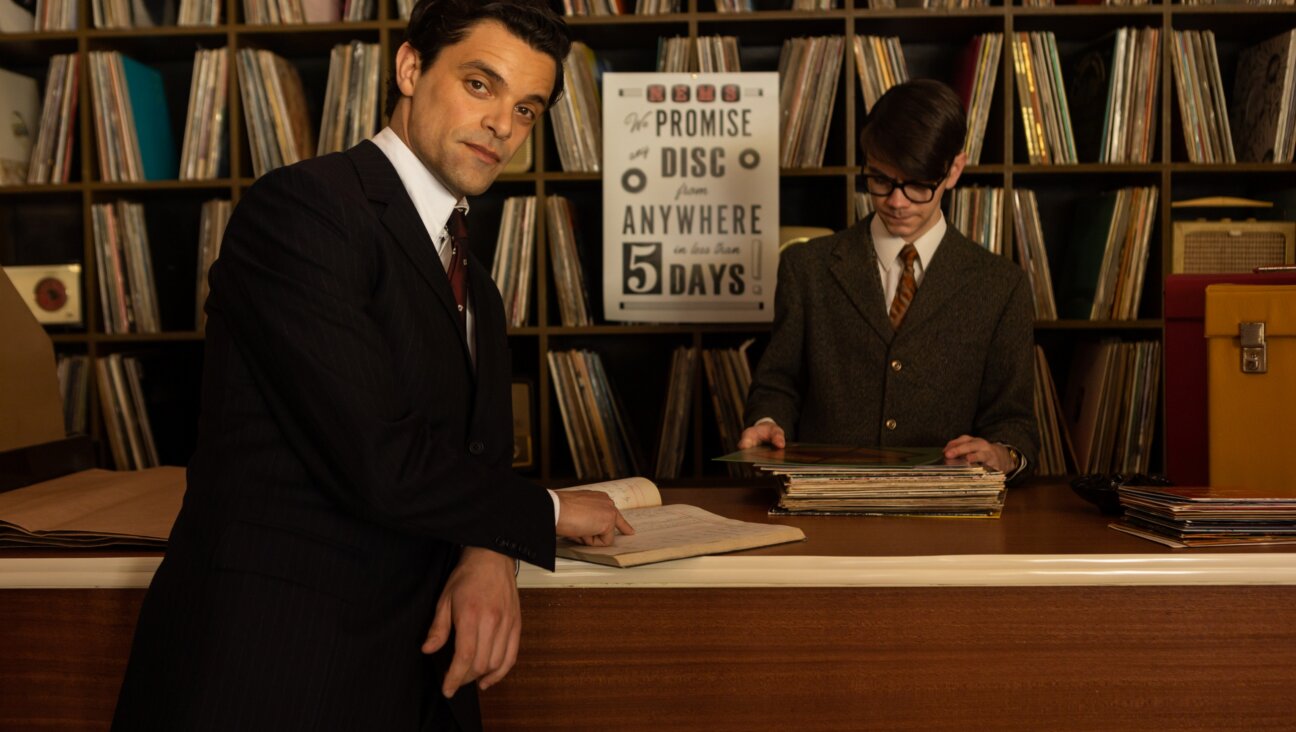French Muslims Hope To Learn on Israel Visit
Standing in long, colorful robes and wearing traditional rounded hats, a group of men stood in reverent silence as one of their leaders placed a memorial wreath at Yad Vashem, Israel’s national Holocaust museum.
The group was a delegation of 19 Muslim leaders from France, in Israel to learn more about the Jews and their state. After a series of attacks against French Jews this year, many perpetrated by Muslims, the imams hope to improve the French Muslim community’s relationship with its Jewish neighbors.
Delegation leader Hassen Chalgoumi, imam of the Drancy Mosque near Paris, said the trip reinforced the importance of combatting Islamic fundamentalism and Holocaust denial.
“Life is more important than holy books,” Chalghoumi said in a speech outside of Yad Vashem. “We say in the name of love, of life, not to hide what happened” in the Holocaust.
Relations between the Jewish community in France, Europe’s largest, and France’s more than 4 million Muslims have long been fraught. The regular occurrence of anti-Semitic acts in France, including the horrific slaying in March of a rabbi and three children outside a Jewish day school in Toulouse, have significantly heightened the tension and mutual suspicion. Other incidents of anti-Semitic violence have followed, including a bomb exploding in a Jewish grocery store.
Chalgoumi conceived of the trip after coming to Israel in June for the French Embassy’s Religion and Democracy Forum. Inspired by that visit, he wanted his colleagues to see the country, even as it generated controversy in his own community.
“They are very criticized by Muslims in France because they decided to come to Israel,” said Olivier Rubenstein, who organized the trip for the French Embassy. “To France, it’s very important to have mutual respect between the communities. French Islam is not the terrorist way.”
The trip, from Sunday to Friday, had one of its most significant moments on Tuesday morning when the delegates visited the graves of the four victims of the Toulouse shooting.
“The majority of Muslims want peace,” said Nourdine Mlanao, president of France’s National Council of Republican Diversity. He said the gunman, Mohammed Merah, is “not a Muslim.”
In the coming days, the trip will take the delegates to Israel’s Foreign Ministry, the Jerusalem Municipality, and to meetings with Israeli businesspeople and religious leaders. The group also went to Ramallah on Tuesday and met with France’s consul in Jerusalem. Chalghoumi and Mlanao both said they hope to see Israeli-Palestinian peace.
While it was unclear what impact the leaders would have on France’s nearly 5 million Muslims, Mlanao plans to speak in public forums about the trip, and wants to arrange dialogue groups between French Muslims and Jews. He added, however, that “the government must take responsibility” for preventing anti-Semitic attacks.
Olivier also commended government efforts and said that in order to address the root of Muslim-Jewish tensions, leaders should organize “more of this kind of event for understanding the other.”
“It’s very important to know the other, not to be stuck in our ideological positions,” he said. “These imams are the leaders of a lot of Muslims in France. They’ll deliver in France a message of peace and understanding.”
A message from our Publisher & CEO Rachel Fishman Feddersen

I hope you appreciated this article. Before you go, I’d like to ask you to please support the Forward’s award-winning, nonprofit journalism so that we can be prepared for whatever news 2025 brings.
At a time when other newsrooms are closing or cutting back, the Forward has removed its paywall and invested additional resources to report on the ground from Israel and around the U.S. on the impact of the war, rising antisemitism and polarized discourse.
Readers like you make it all possible. Support our work by becoming a Forward Member and connect with our journalism and your community.
— Rachel Fishman Feddersen, Publisher and CEO























